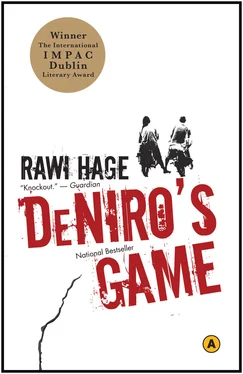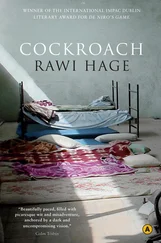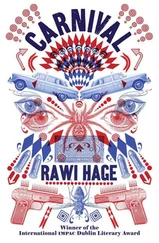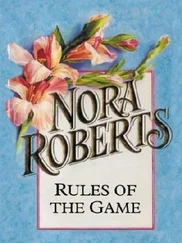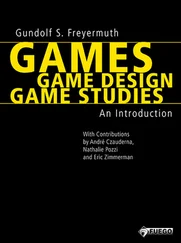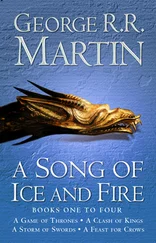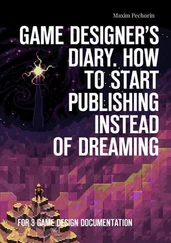As I walked toward the motorcycle, Said drove by me slowly in his beaten-up Mercedes. He stared at me, and I looked back at him.
What was your last name again? he asked me.
I did not answer him, and did not take my eyes off his car window. I remained calm because I could see that both his hands were on the steering wheel.
Said nodded his head slowly, then one of his hands moved and dangled out of the car widow. Yeah, Al-Abyad, I just remembered, he said with sarcasm. There are a few of those names still living on the other side, I bet. He drove away.
I HOPPED ON the motorcycle and drove home. As I reached my street, from the corner of my eye I saw Rana leaving my building. I saw George leaving behind her, heading in a different direction. She looked back at him and fixed her hair. Then she gave him a sign with her hand, and ducked her head into her shoulders, and slipped away fast, brushing against corners and the clandestine walls.
When I saw them, I made a sharp turn and took Saydaleh Street. I drove through Achrafieh; I drove fast, racing and cutting in front of cars. Four young men in a red Renault decided to race me. They jeered at me and honked behind me, and tried to block my way. One of them stretched his upper body from the back window of the car while his friend held him from the waist. He extended his hands and tried to catch me to bring me down. I accelerated, climbed on the sidewalk, stomped one foot on the ground, leaned the machine toward the curb, and gave it gas. It swung in the opposite direction, and I drove the wrong way up the street and lost them.
I went back to my house. The dishes were clean.
I SLEPT ALL MORNING. In the afternoon I walked toward Rana’s house. I waited across from her building, pacing, with a cigarette in my hand. I leaned against the wall of the fish store. I waited, and it rained and poured, and the water rushed down from the roof and peed its way through pipes and drains, splashing on sidewalks. Faces sunk beneath colourful umbrellas passed me by. Cars made their way through little pools and drove wedges through the water, splashing it into ephemeral, flying waves.
Then the old sun came out again, and the roofs, like wet dogs, shook the rain from their backs, and the fisherman’s fish had a last bounce, shedding its freshness, forgetting its home under the sea. I waited for Rana, but she never came down to dip her feet in the wet streets.
THE NEXT DAY I arranged to meet Rana at my house. I asked her why she never came by any more.
I have been busy, she said.
You never passed by?
Busy, I have been busy. She looked away, confused.
Should I thank you for doing the dishes? I asked, seizing Rana by the hair, pulling her head back, and kissing her neck violently, fumbling at her breasts.
Bassam! she whispered, sounding scared and bewildered. I pulled her by her dress to my parents’ room, ripping her clothes, snapping the buttons on her blouse. She attacked me with her nails. I slapped her face. She cried, escaped me, and ran out of the room with a naked breast, stumbling over chairs and hitting the wall arches. She threw herself on the door-knob, twisting it as if the house was on fire, and staggered out.
I went to my parents’ room and looked in the mirror. Tears slipped out of my eyes. I opened the drawer, grabbed my father’s handkerchief, and wiped my face with it.
Then I loaded my gun and walked toward George’s place. I banged on his door, but no one answered.
I took his motorcycle and drove fast up to the mountains and into the empty hills. I parked at the top of a cliff. I looked down at the green, and watched and cursed the brown valleys that were covered with listless patches of soil. I pulled out my gun and shot at the hills, and at the birds, and the echoes of my shots bounced on stones, and lamented and boomeranged treacherous syllables back to me.
A FEW DAYS PASSED AND TEN THOUSAND JOHNNY WALKERS marched west, burning throats and breaking houses. Men drank liquor, and bedroom doors slammed, and thighs closed with promises never to reopen, and rings were pulled from fingers and tossed toward old dressers, weeping mirrors, and joining walls.
One afternoon I received a call from the whisky manufacturer. He asked me to do an urgent delivery for the next day.
The next morning I picked up the whisky from the warehouse. Then I passed by Joseph’s place and picked him up. In the van, I handed Joseph some money. He counted it and smiled.
Ali was late for his delivery, so we waited. Soon, one of the kids showed up and informed us that Ali was on his way. I asked Joseph to back up the van. Then I walked behind the wall and met Ali. He shook my hand, opened his jacket, pulled out an envelope, folded it in two, and quickly slipped it inside my jacket. He winked at me. I waited until Joseph was far from the van, watching the kids unload, then I quickly hid the envelope under the van’s seat.
On the way back to our neighbourhood, Joseph mentioned that he had seen a few Israelis on the street recently. They are coming, he said. Give it a month or so, and you will see them here, chasing out the Syrians and the Palestinians.
How do you know?
De Niro came by to see me the other day, said Joseph. He told me that he needed me for a security operation. He picked up a few other trusted men, and we drove to the mountains. When we arrived, they told us that Al-Rayess was there for a meeting with an important Israeli general. So we cleared and surrounded the whole area. Half an hour later, a helicopter landed and five Israeli military men came down. They all had burgundy boots: Special Forces. They held a three-hour meeting with Al-Rayess. Your friend De Niro is a big shot now, the right hand of Abou-Nahra.
What is the Israeli general’s name? I asked.
General Drorir something. . I can’t remember.
When I arrived home I rushed to my room and opened the envelope from Ali. It was a letter from my Uncle Naeem:
Dearest Bassam,
I learned of you mother’s death with great sadness. It brought tears to my eyes, and it even made me sadder not to be able to attend the funeral. I long to be with you, especially in these hard times. I often wonder what your life is like on the East Side alone, and orphaned at such a young age. I did not attempt to get in touch with you or your mother all these years for fear that my position with the leftist forces might put you and your mother in jeopardy. But you are welcome to cross to West Beirut any time. I can arrange for your coming here. You can stay with me, my wife, Nahla, and your cousin, Nidal, whom you have never met. I have sent you this small amount of money, in case you might be in need. I have also enclosed another envelope to be delivered to an old acquaintance of mine by the name of Jallil Al-Tahouneh. Enclosed is his contact information. He is expecting your call.
I send you all my love.
Your uncle who misses you,
Naeem
I copied down the name and the number of my uncle’s contact, tore the letter to pieces, burned it in an ashtray, and counted the money. There were ten hundred-dollar bills, new blue bills that almost whistled. The other envelope from my uncle was closed and bore the initials J.T., for Jallil AlTahouneh. I opened it. There was a bundle of money and what looked like a map, or architectural drawings of a house foundation. The word asas (foundation) was written in red and circled on some areas of the map.
THAT NIGHT, I wanted to avenge a wrong done to me. I stood across from the poker place and waited. I saw Najib’s friend leaving. I watched him from across the street. I saw that he drove an old, beaten-up blue car.
I put on my helmet and hopped on the motorcycle and followed him to Dawra.
Читать дальше
